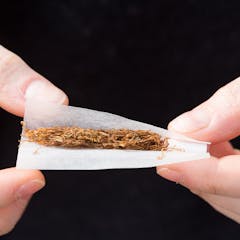
Articles on Cigarettes
Displaying 41 - 60 of 91 articles

A chemist assesses the potential risks of electronic cigarettes.

Hundreds of lawsuits against Monsanto contend that its popular Roundup weed killer gave users cancer. But proving this kind of connection is challenging in both science and law.

Indonesia has the region’s highest rate of smoking among youths – one in five between the ages of 13 and 15 smoke. What should the government should do to stop youth from smoking?

Some experts believe that e-cigarettes can help people stop smoking cigarettes. But do they lead others, especially teens, to start? The question intensifies as teens take up Juul.

South Africa’s proposed new tobacco laws will tighten the grip on how cigarettes and other tobacco products are sold, marketed and regulated in the country.

On World No Tobacco Day, the focus is usually on the health risks of cigarettes. But what about the way Big Tobacco exploits impoverished farmers in Malawi?

The e-cigarette industry emerged as an alternative to traditional tobacco, but now it’s dominated by Big Tobacco. That’s why transnational regulations are needed for the industry.

Tobacco taxes have been shown to curtail cigarette smoking. Why aren’t more countries, including the US, implementing them effectively?

What if we treated climate change as a health problem rather than an environmental one? There are lessons to be learned from the successful public health campaigns against smoking.

Many smokers still think filters make cigarettes safer. But they actually make them more harmful, and the tobacco industry has known about this for a long time.

Most people know that second-hand smoke is dangerous, but evidence that third-hand smoke is dangerous too is growing.

FDA Director Scott Gottlieb has proposed discussions about drastically cutting nicotine levels in cigarettes. This could result in some of the biggest health gains in history.

A new study reveals the risks of vaping in non-smoking teenagers.

Do US smokers really know the risks? Research from Australia, Canada and Mexico shows that there are better ways to warn consumers.

Roll-your-own tobacco contains additives to stop it from drying out. So, it’s hardly a “natural” or “healthier” alternative to factory made cigarettes.

The UK is the latest country where tobacco companies cannot market their brands on their packets.

The effects of long-term tobacco smoking on our mental faculties such as memory and concentration are only now becoming known.

Big tobacco companies have found a way around plain packaging with clever marketing techniques that undermine Australian regulations.

Hidden links between tobacco companies and tobacco control opponents may be hindering plain packaging legislation around the world.

The Uruguayan government’s victory over Philip Morris should embolden other countries to introduce stronger tobacco-control policies.
